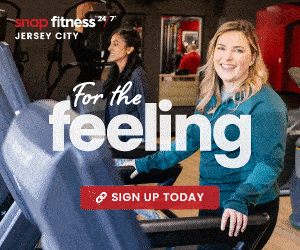Technology seems to have found its way into every aspect of our lives. Whether it’s opening an app to make a reservation or using an app to find a date, apps taken over. Although there are some downfalls to using an app for everything, they can also help in bettering your mind. Read on to find out how Dana Czachorowski of Shine Fiercely explains how using technology and apps can help improve your mental health.

Technology is weaved through our everyday lives. Our phones are glued to our hands, and we can’t get by without the internet. Everything from food to clothes to love can be found with a few clicks and some swipes. We form communities, curate our social media profiles, and cultivate entire relationships online. We are empowered, brave, and safe behind our screens.
Social media heavily influences thoughts, feelings, and behaviors. There is an incredible amount of pressure to present your life as perfect, have a certain number of followers/subscribers, and obtain as many likes as possible. Stress and anxiety about algorithms and audience engagement are real. When it all gets to be too much, there is always the option of taking a “social media break” or “disconnecting” from technology all together as a form of self-care. It’s a great way to reset your brain and center yourself back to reality.
For many, disconnecting for an extended period isn’t possible or realistic. This is when we lean into technology to aid in self-care and take advantage of the millions of resources available to promote good mental health. Below are some excellent resources that have been tested and approved by mental health professionals and come highly recommended by people who have used them.
SeeMore: A Therapist Shares How to Prioritize Your Mental Health
Headspace
This is a meditation app that focuses on developing a mindfulness practice. The Headspace blog has a ton of great information and articles if you’re just dipping your toes into the mindfulness waters. Mindfulness is about bringing your attention and awareness to experience the present moment and is practiced by those who need help managing stress, anxiety, and depression. Before you make the financial commitment that Headspace requires, try some free mindfulness meditations on YouTube. {Cost: $12.99 monthly, $94.99 annually, $399.99 lifetime.}
Calm
This is another meditation app that also focuses on sleep and relaxation. Like Headspace, the focus is on building your mindfulness practice, but there are a couple of features that set the Calm app apart. Sleep Stories – bedtime stories for grown up and calming music are heavily featured in the app. Fall asleep to a calming, relaxing voice reading a serene tale or a sweet lullaby. The app has lots of free content, but the bulk of the app is only available via subscription. {Cost: $59.99 annually or $399.99 as a one-time payment}.
Moodpath
This app tracks moods, thoughts, and feelings for two weeks and then provides an assessment of what has been reported during that period. The idea is concrete data is available to make talking to a therapist or psychiatrist more concise. Mood tracking is often used in therapy especially when we notice slumps, swings, or other changes in moods. {Cost: none.}
Moodnotes
This is a journaling app. The idea is to help you improve your way of thinking by challenging your negative self-talk. How it works is you’re prompted to log what happening at the moment – thoughts, feelings, body sensations. Then, you’re provided with a list of feelings words, positive and negative, and then asked to rate which are fitting your mood right now. You’re then prompted to “check your thought” and identify what, “thought trap” you fall into. This is great to use if you’ve fallen into a pattern of negativity and are looking to improve your outlook. With time, you’re provided with insights into the data that you’re providing, which can be incredibly beneficial if you find it necessary to seek treatment. {Cost: $4.99.}
YouTube
There is so much free content and resources on YouTube, but be sure to do some research on where you’re getting your information from. Some therapist favorites are:
Kati answers a ton of general mental health topics including questions she receives. She has over 1000 videos tackling everything from “What Is My Therapist Thinking?” to “Signs You Need Therapy.”
Jodi’s focus is anxiety and has a ton of related content. She offers quick coping skills for when a panic attack creeps up, talks about fear, and discusses dealing with tragedy among about a hundred other things.
Parenting can feel like a never-ending uphill battle. Especially in the age of social media where other parents make it look so easy. Raising kids is the hardest job that there is and there is support, help, and reassurance for that on this channel. The videos are a bit longer and niched down, so you don’t need to worry about trying to binge them all. Therapists recommend two: Episode 27: Embracing your Parenting Imperfections and Episode 33: Supporting Children and Their Emotions.
Brad is a marriage coach and break-up expert, but much of his content can also be applicable for dating and relationships. He provides advice on breaking up and issues in marriage. If he’s not your cup of tea also try Matthew Hussey or TrippAdvice – both fantastic and reputable dating and relationship experts.
Autonomous sensory meridian response {AMSR} is that tingly sensation you get in the scalp and back of your neck in response to a specific sound. Typically, whispering, taping, brushing, or crinkling sounds are used to elicit the AMSR. Maria’s channel is dedicated to providing relaxation and bring peace through triggering AMSR.
Read More: How to Find a Therapist {Hoboken Girl} Style
If you’re feeling like you need a little mental health boost, take advantage of all the free information that is available to you. Improving upon your mental health can significantly influence your physical health, improve focus and concentration, and give you a more positive outlook. If you’re looking for something more individualized or prefer to process things out loud, mental health professionals are implementing more and more technology into their practice and treatment.
Many therapists are using online-based platforms to conduct therapy and using apps to help facilitate sessions. Similar to Skype, online therapy works just as well — if not better — than traditional in-office therapy. From the comfort of your home, office, or hotel room, you get to have a full hour-long session without needing to worry about traffic or setting aside additional time out of your day to travel to the office.
Have you tried any of these awesome apps? Let us know in the comments!










